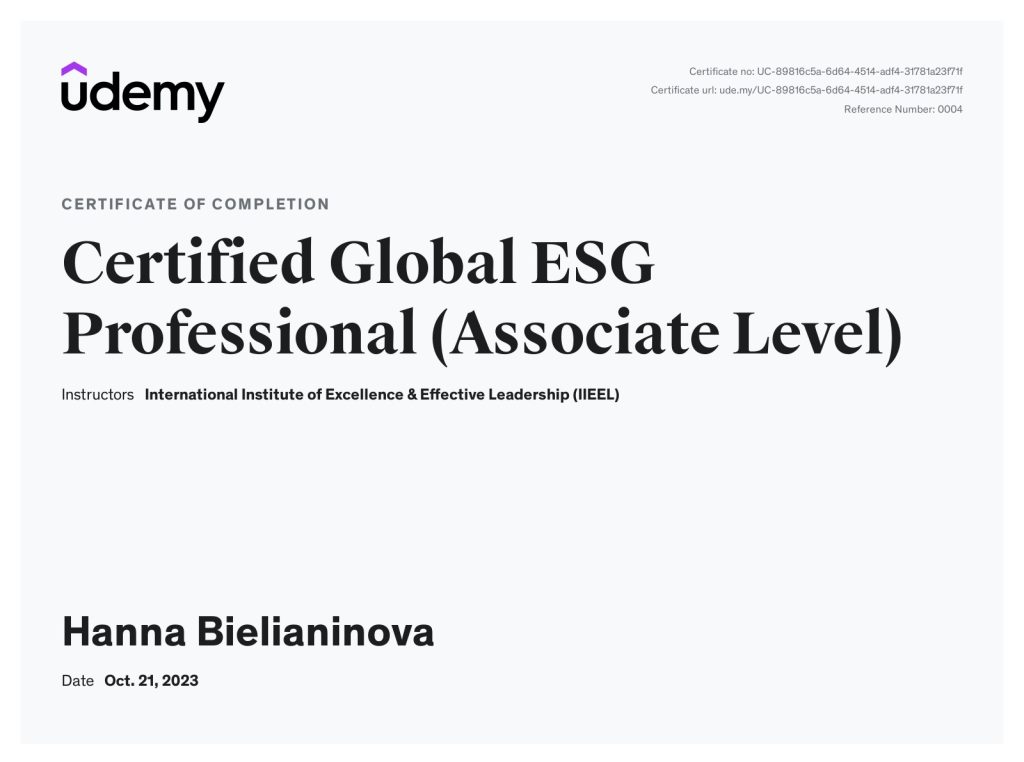Environmental, Social, and Governance (ESG) has gained increasing attention over the past few years. ESG has considerations relevant to analysts and investors, consumers and employees, and has become a key topic of discussion at the Board table.
This course from IIEEL provides an overview of an ESG framework and how it supports a company’s overall risk management. It examines each component in detail and provides insight into how they converge to impact a company and its stakeholders. The course also discusses how to look at corporate pressures & stakeholder expectations and their impact on risk identification and business success.
ESG (Environmental, social, and corporate governance) is a framework designed to be integrated into an organization’s strategy to create enterprise value by expanding the organizational objectives to include the identification, assessment and management of sustainability-related risks and opportunities in respect to all organizational stakeholders (including but not limited to customers, suppliers and employees) and the environment. A variety of organizations and financial institutions have devised ways to measure the extent to which a specific corporation is aligned with ESG goals. The most prominent global movement in this regards is the adoption of the Sustainable Development Goals (SDGs) by United Nations.
What you’ll learn:
– Learn Environmental Social Governance (ESG) Fundamentals, ESG Factors, Reporting and Valuation of ESG & Initiatives;
– What ESG is and its relevance to making financial decisions;
– Describe key environmental, social, and governance types and factors;
– Explain how stakeholders influence corporate ESG performance;
– Analyze ESG risks and opportunities;
– Assess ESG company performance using publicly available information.

